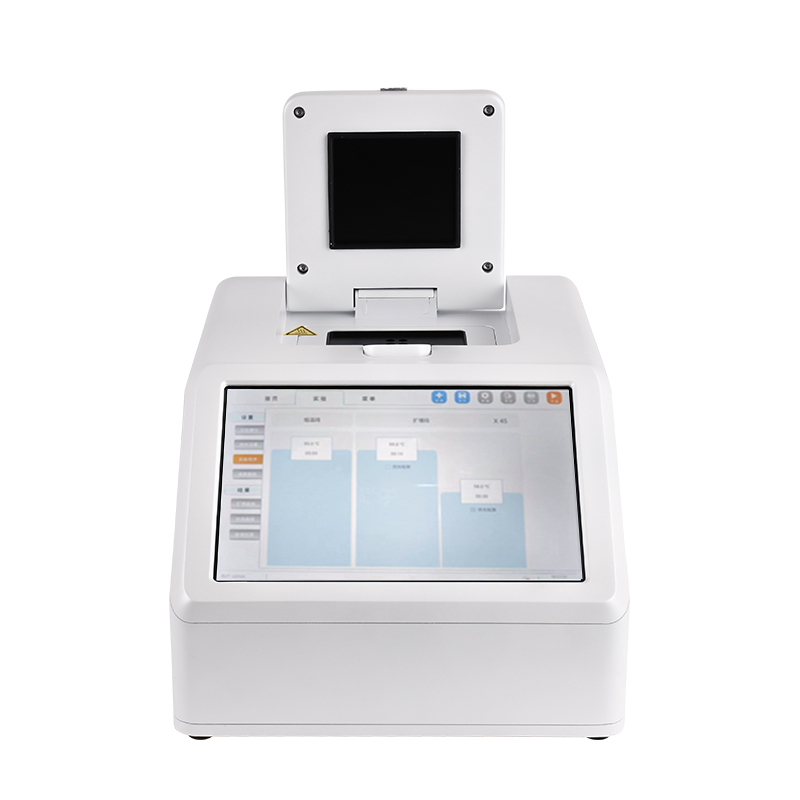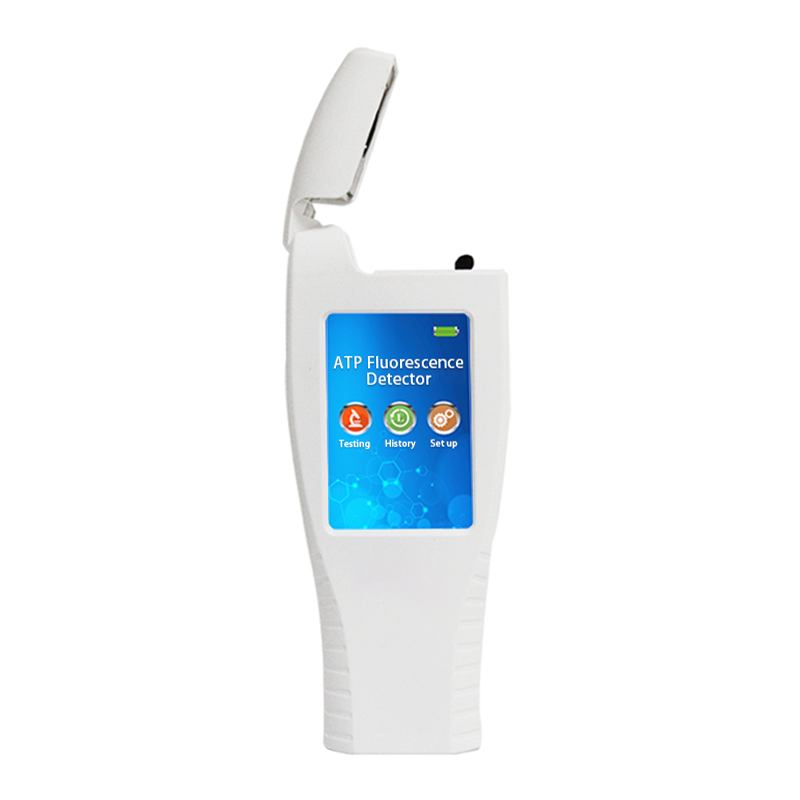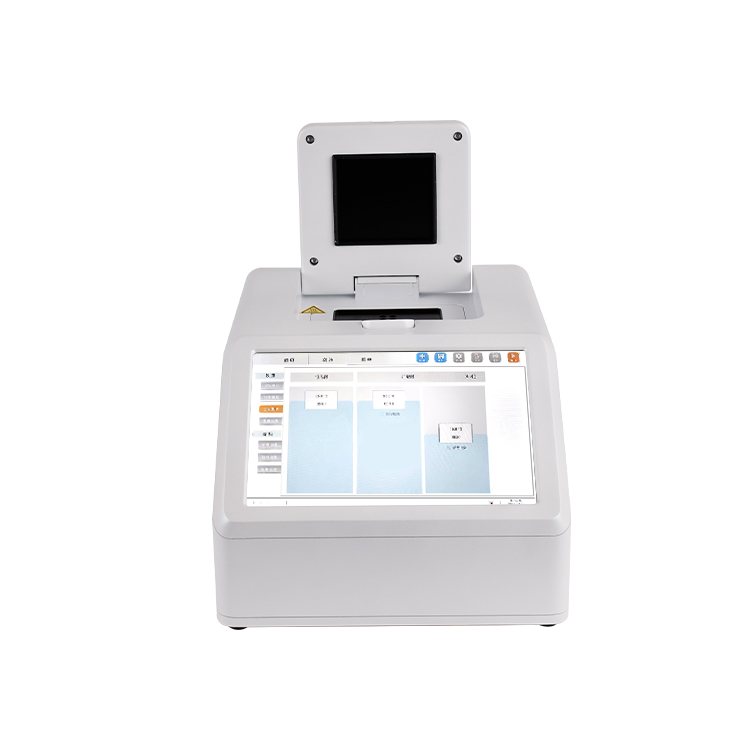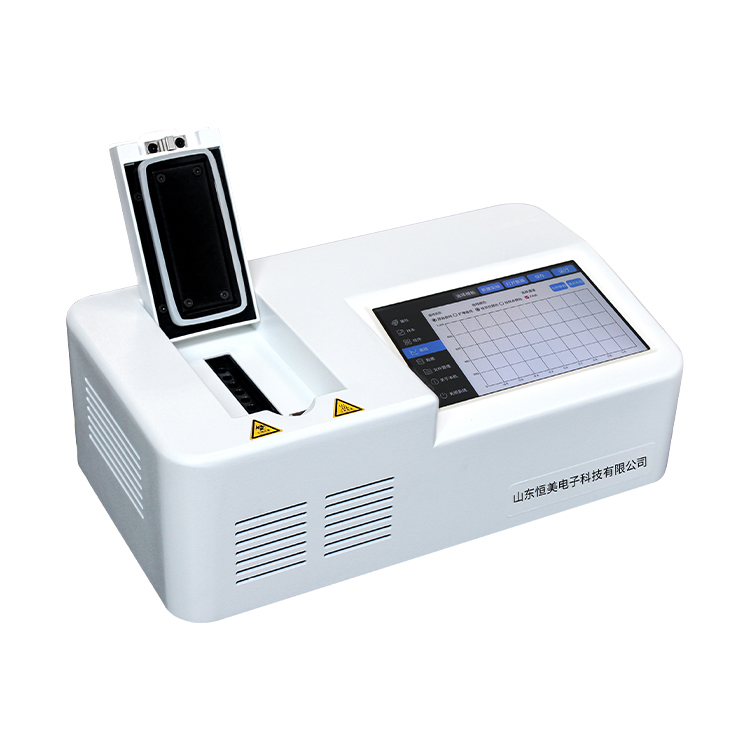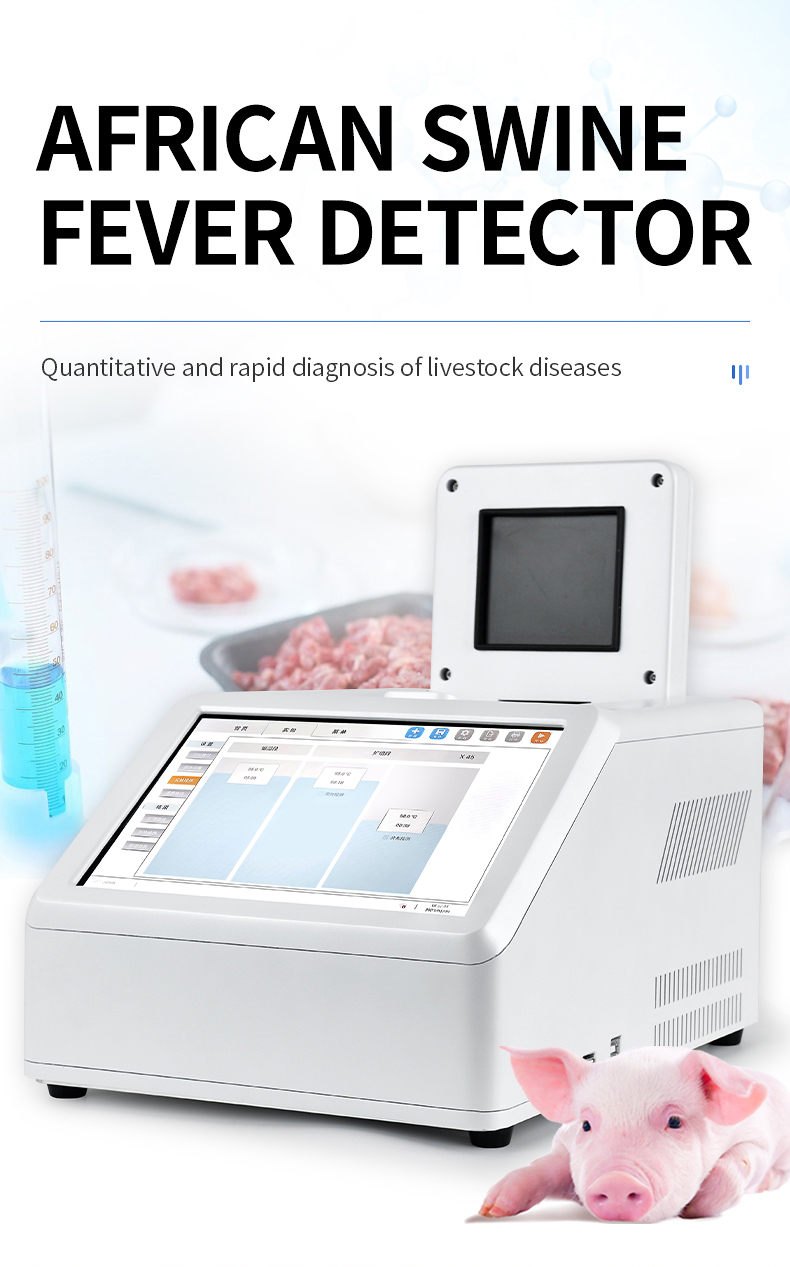
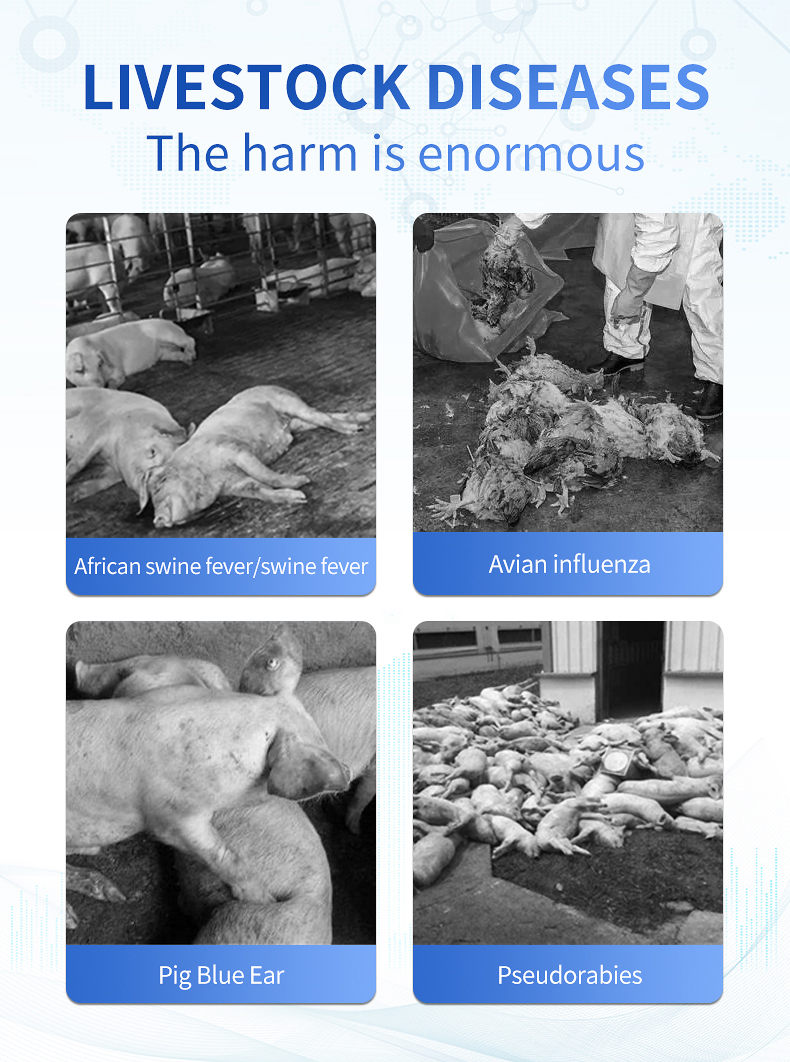
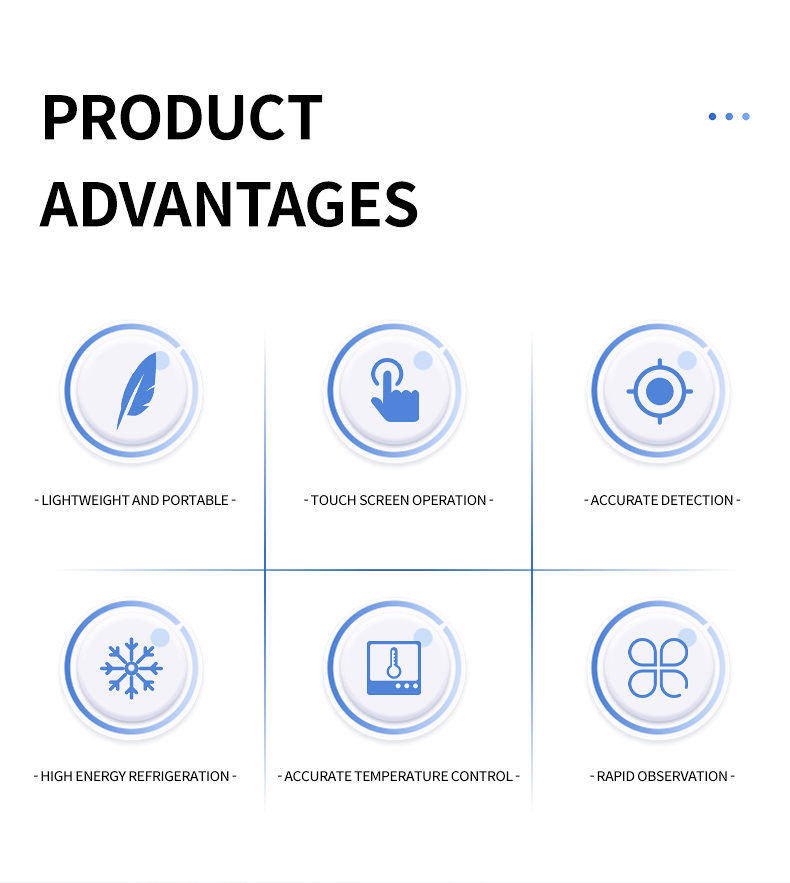
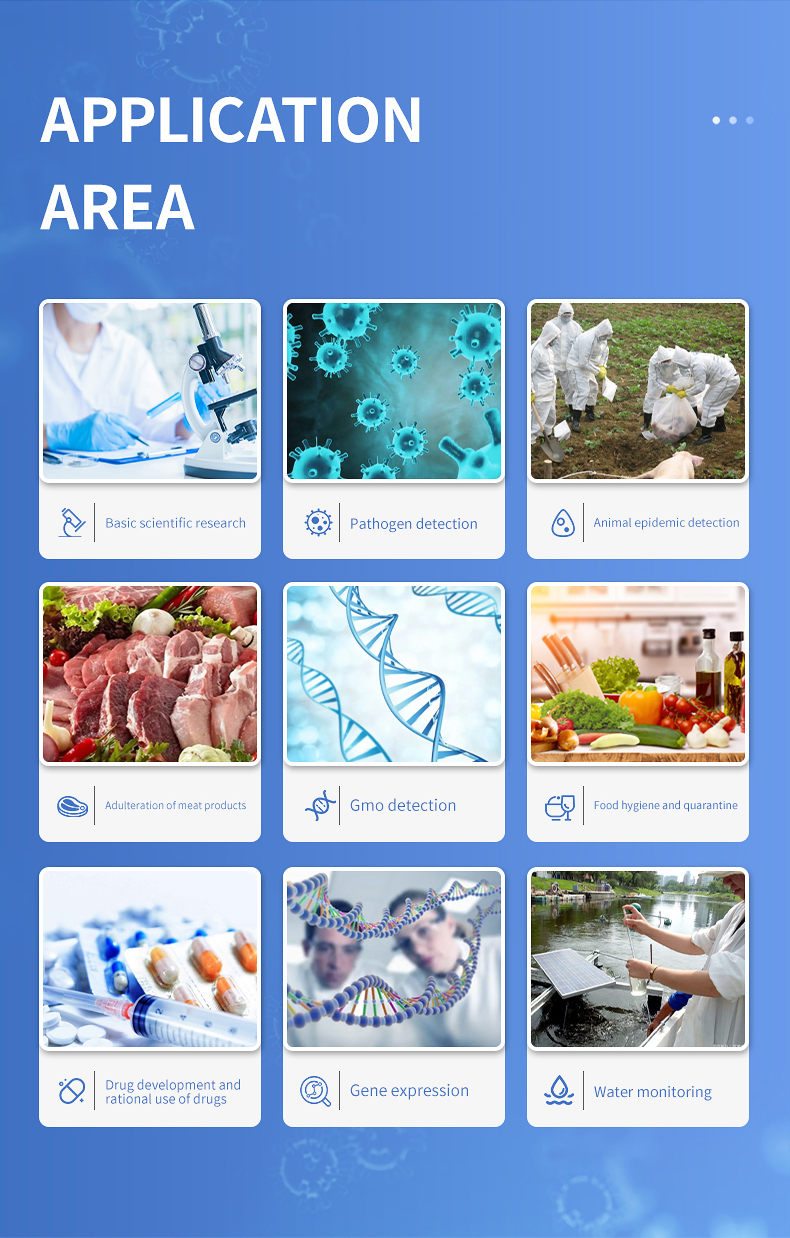
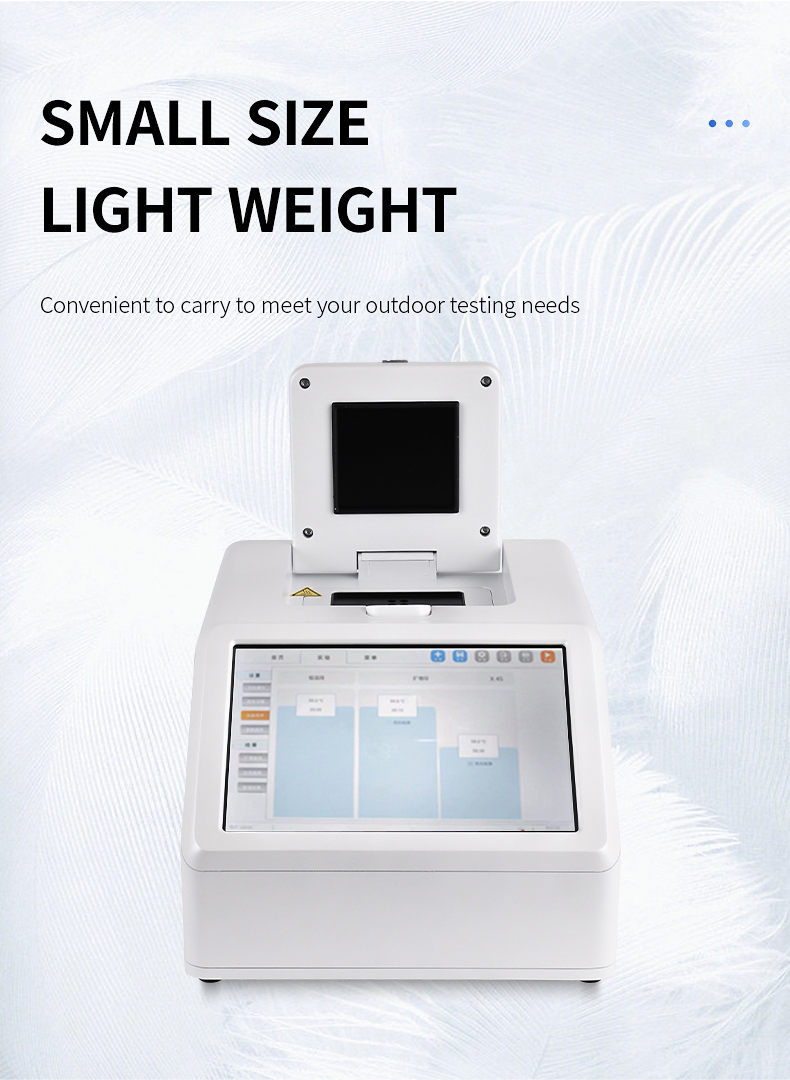
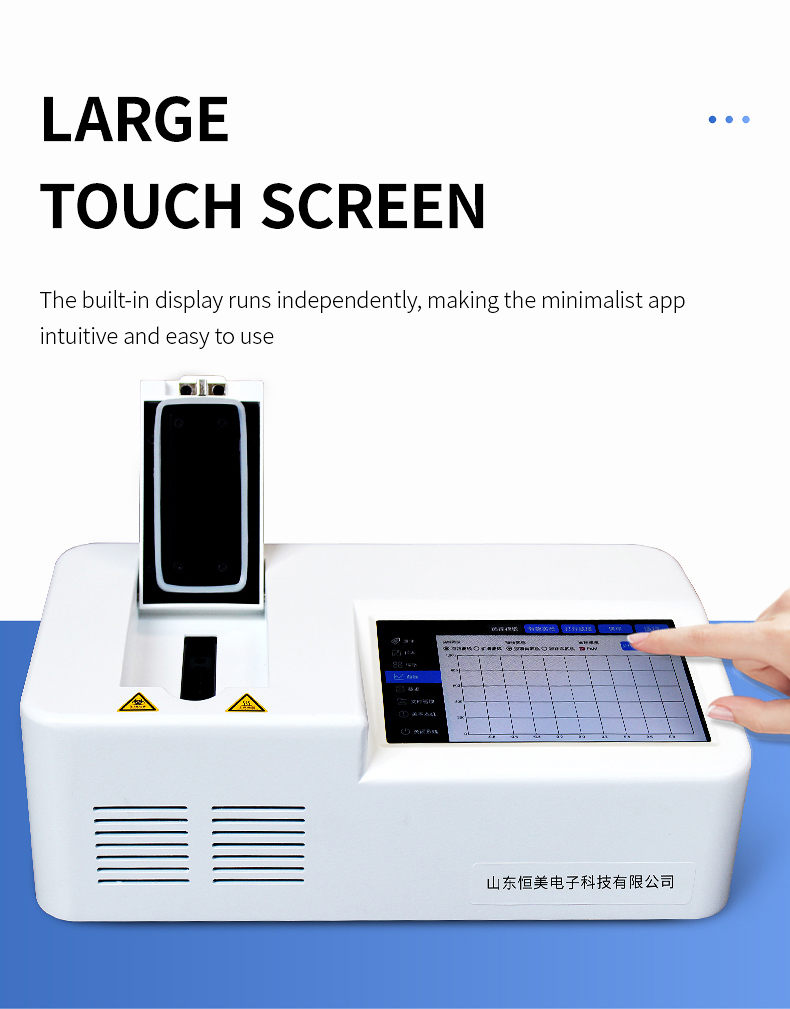
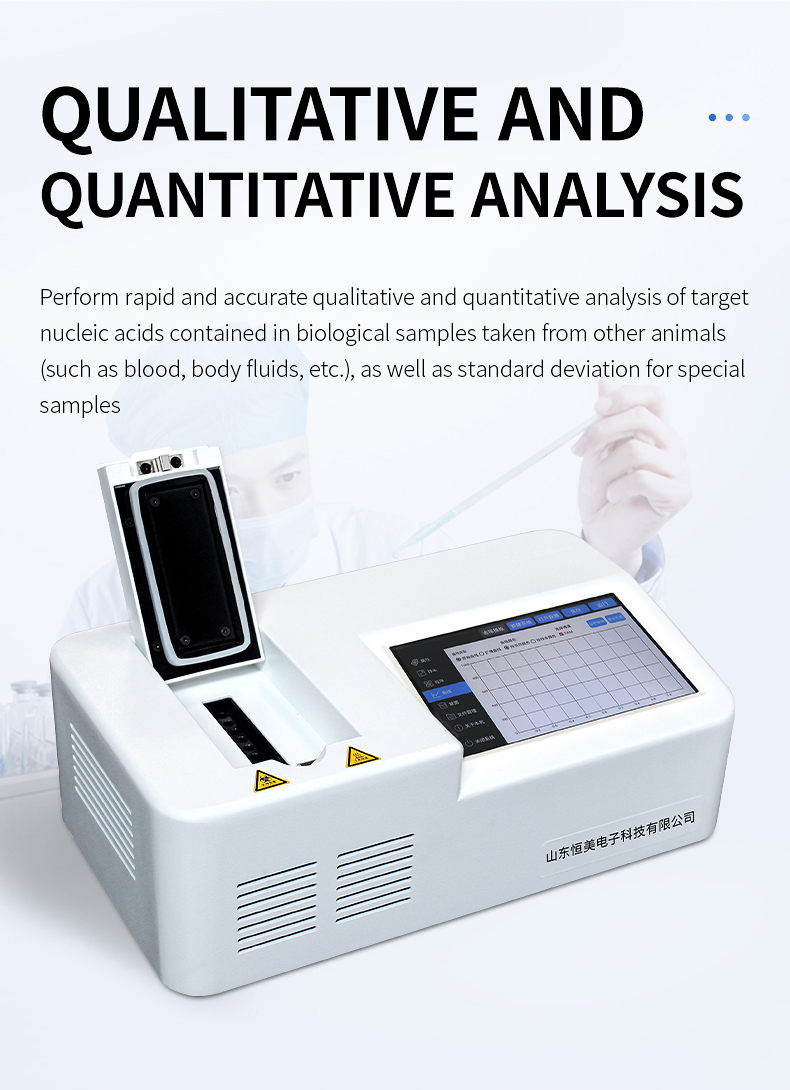
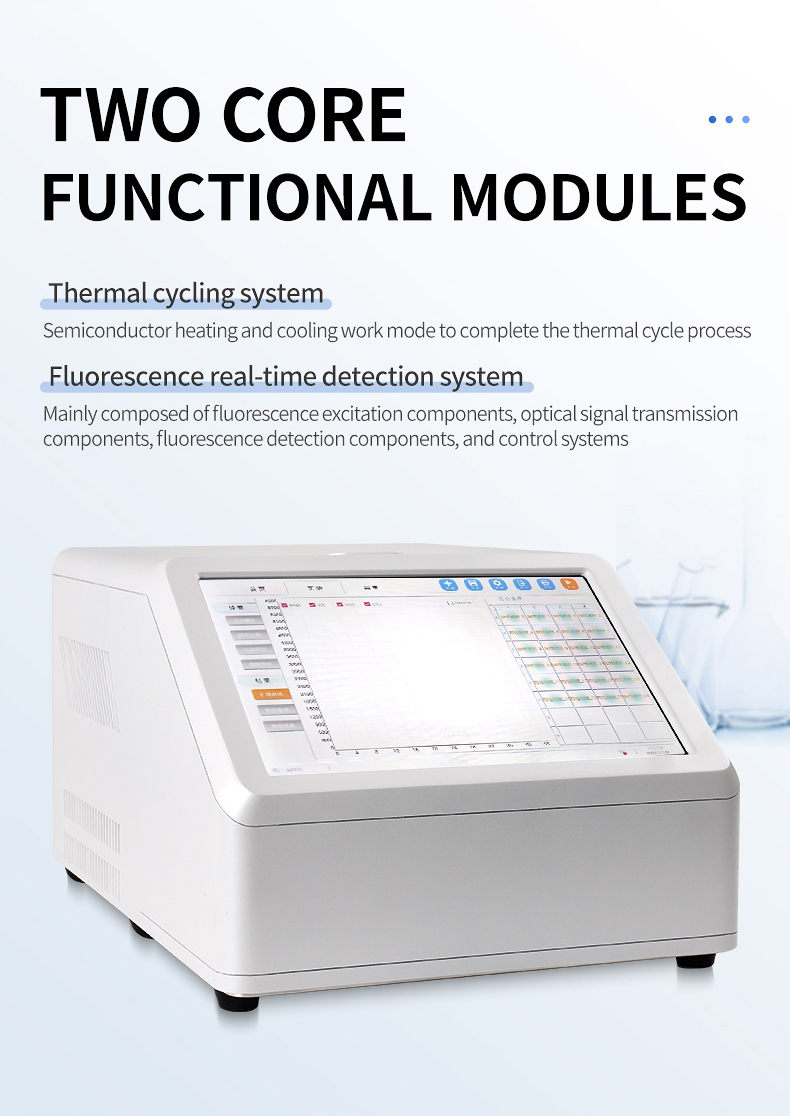
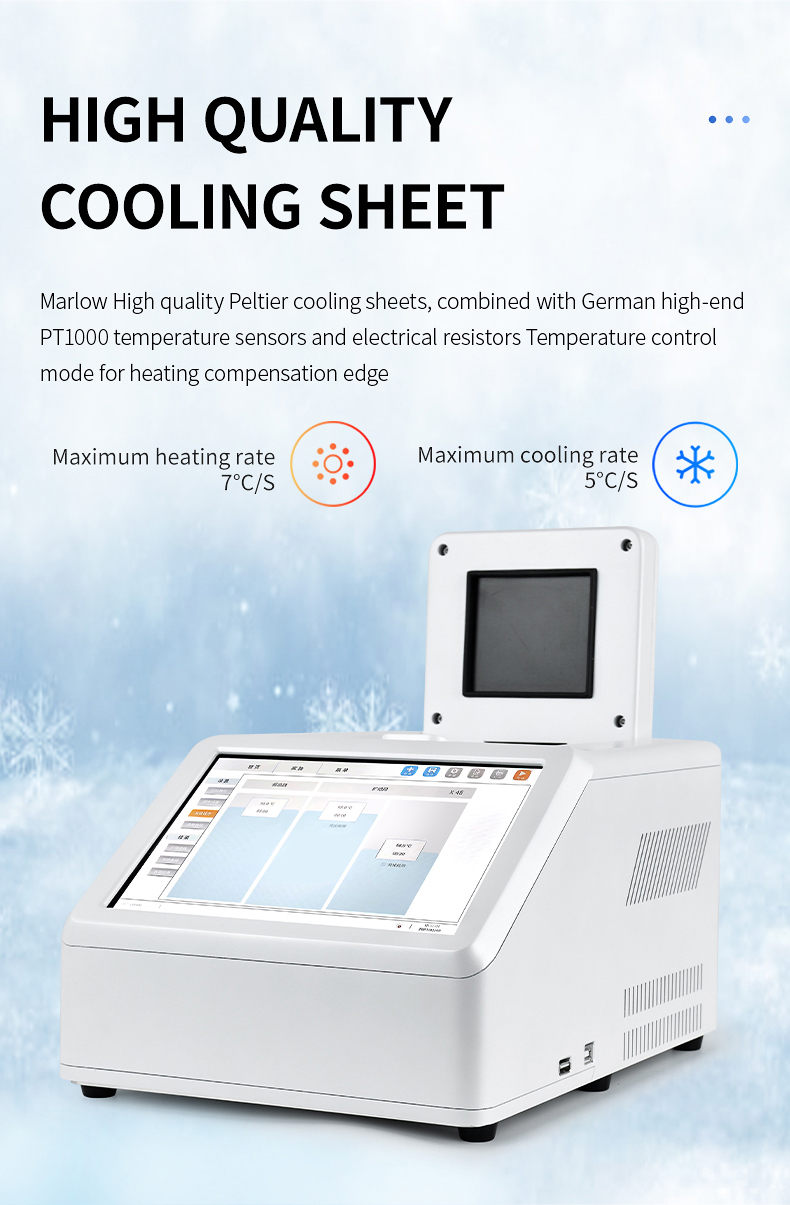
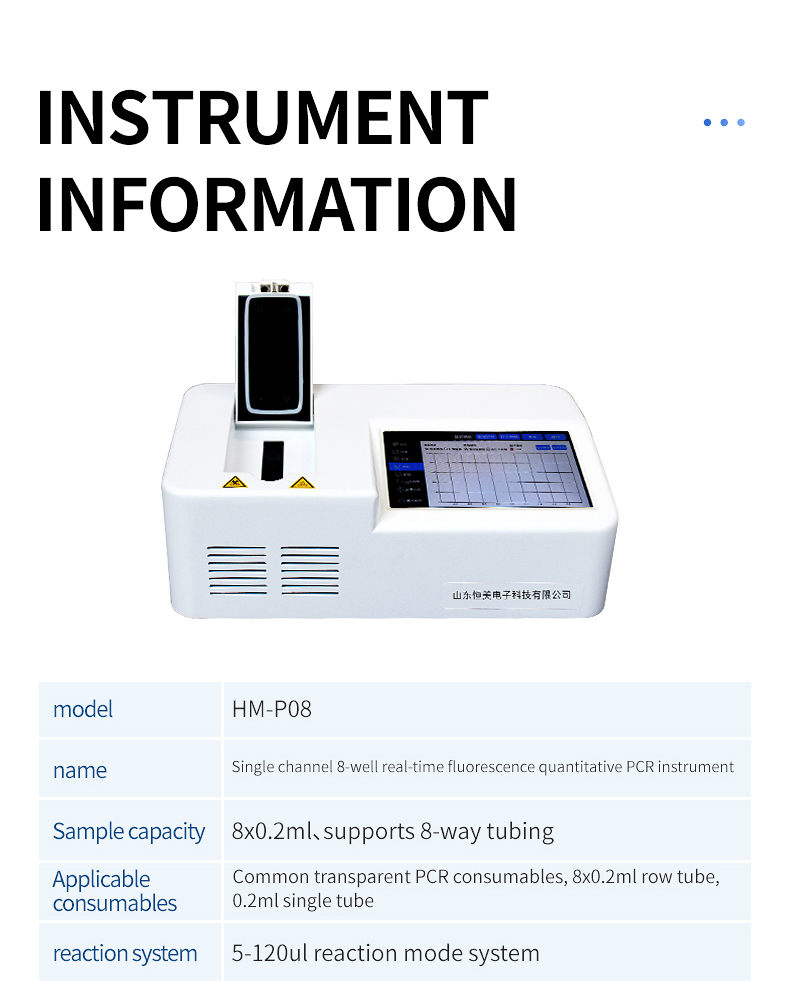
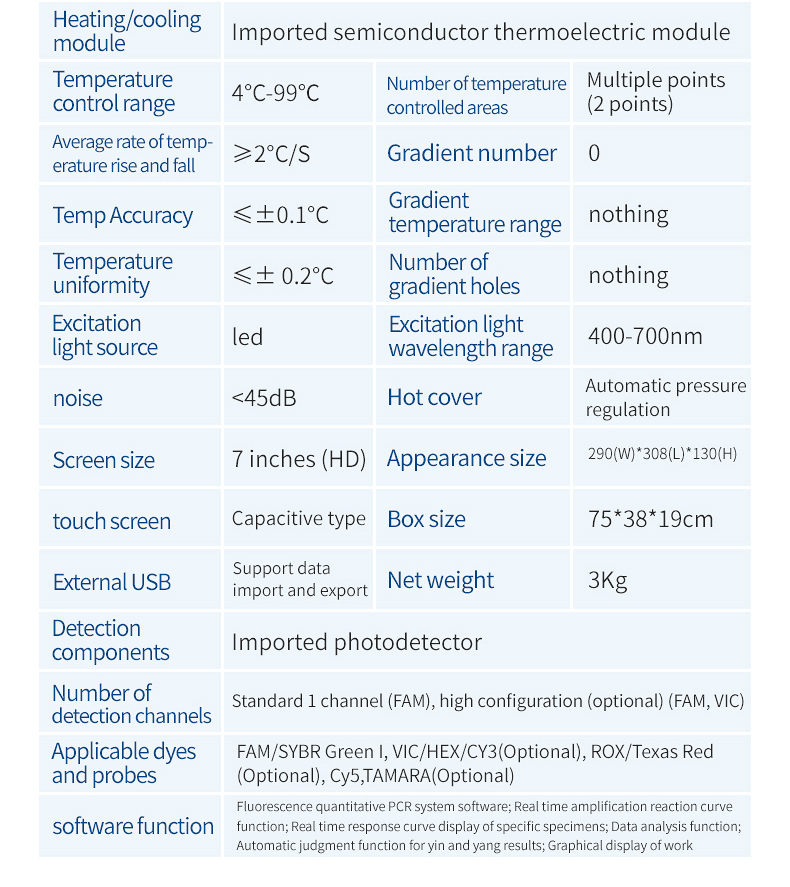
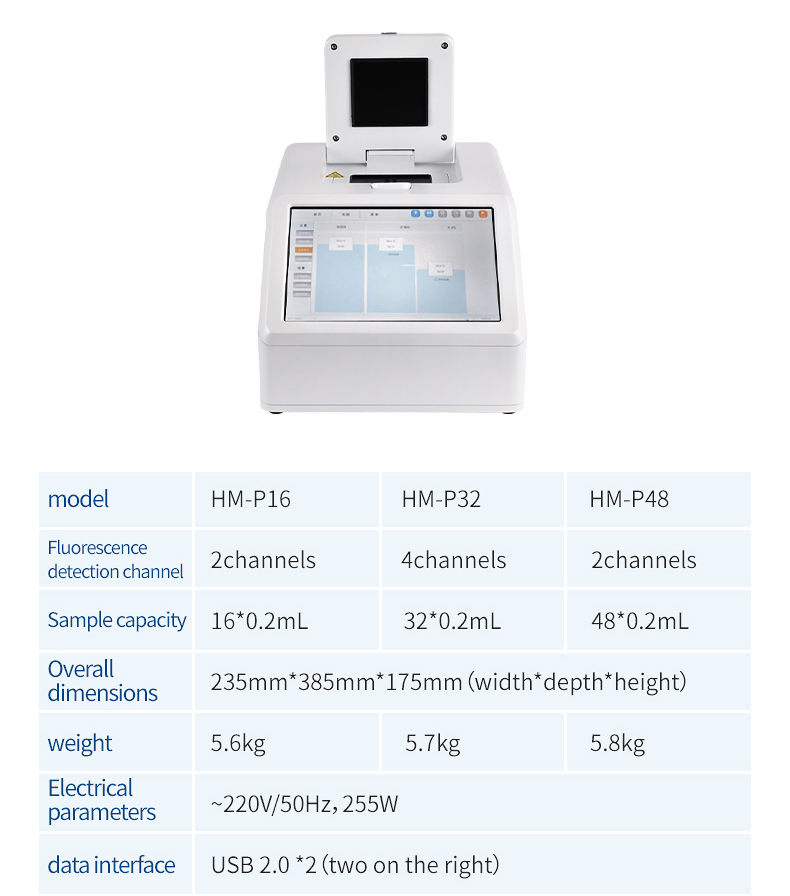
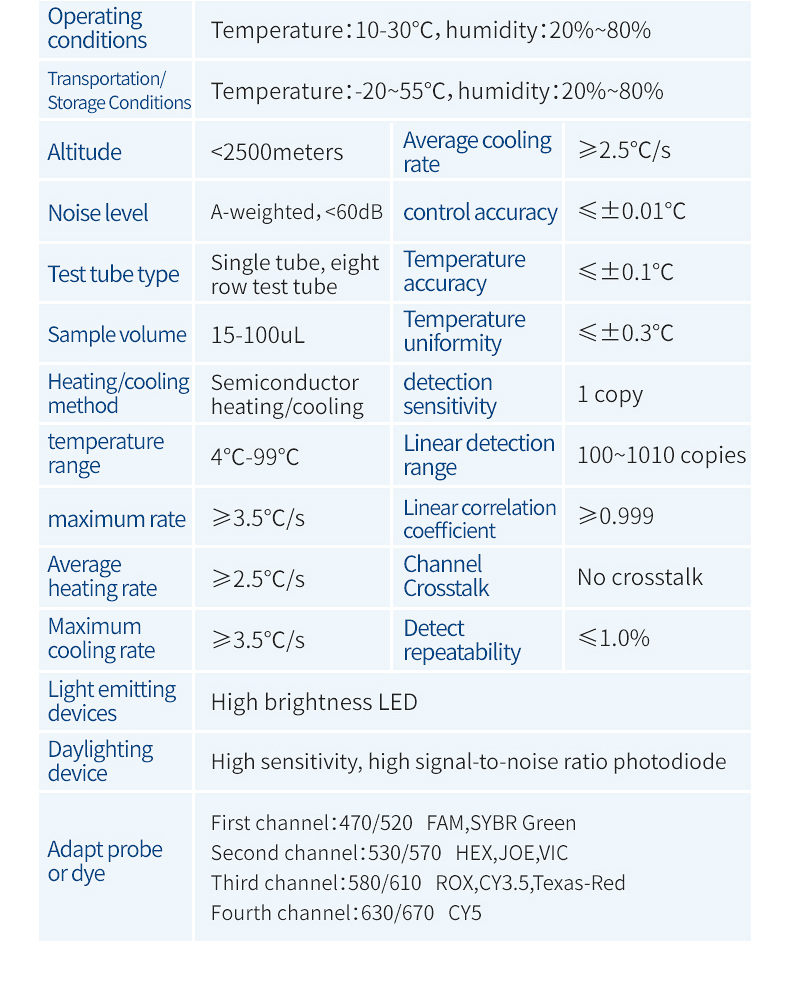
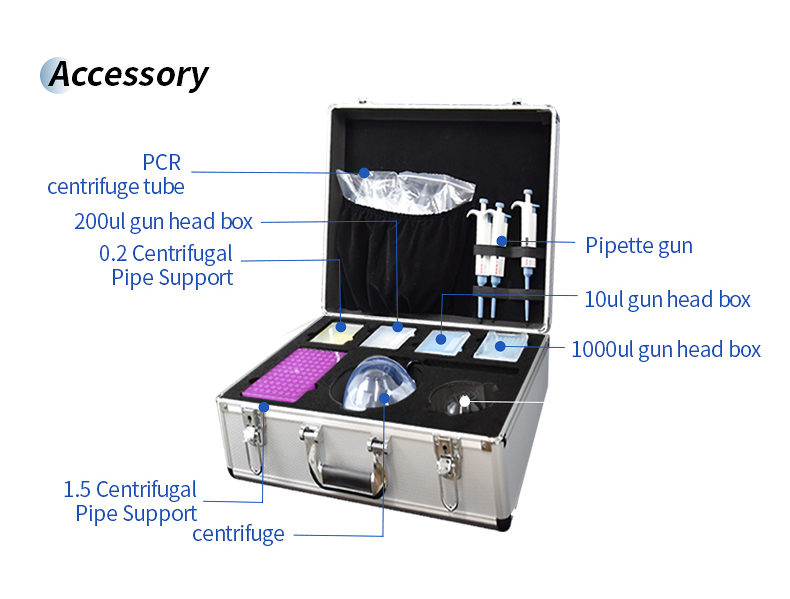
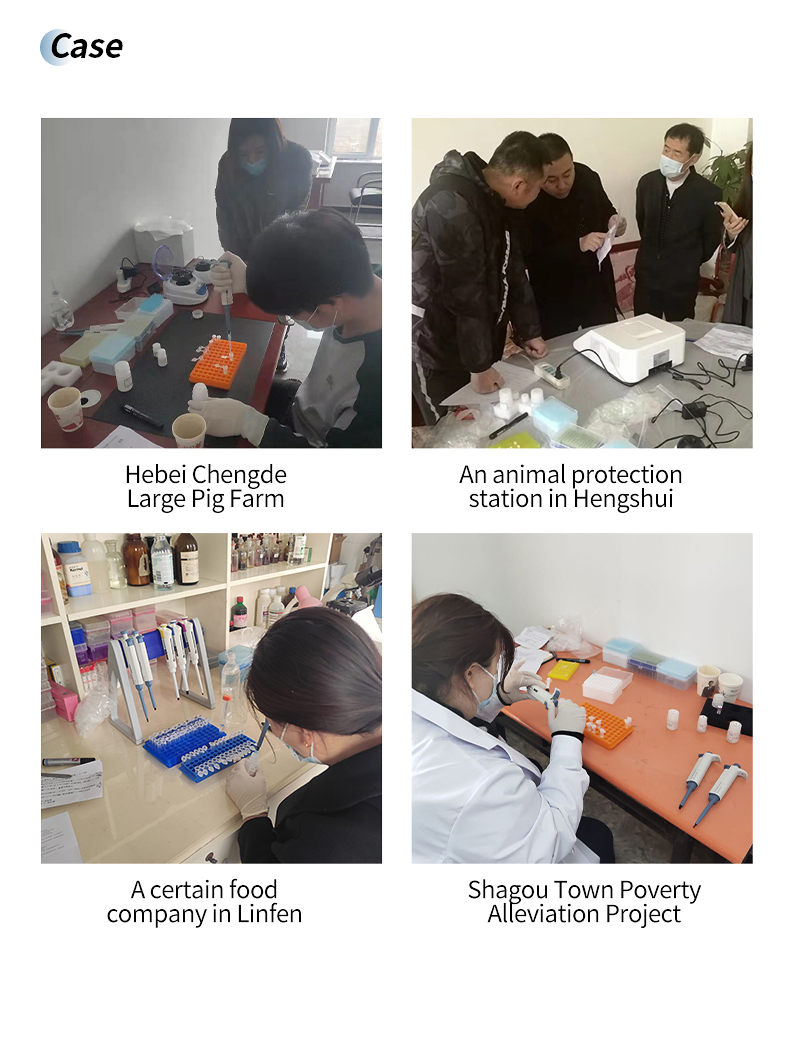
Instrument usage
The African swine fever PCR detector, along with the African swine fever virus fluorescent PCR detection kit and the African swine fever virus fluorescent PCR nucleic acid detection kit, have both obtained product approval from the Ministry of Agriculture and Rural Affairs and can meet the needs of rapid on-site detection of African swine fever nucleic acid. This instrument, equipped with relevant reagent kits, can also quickly and quantitatively diagnose other livestock diseases such as avian influenza, swine fever, porcine blue ear, pseudorabies, etc. It is widely used in breeding farms, slaughterhouses, food processing plants, meat product deep processing enterprises, the Ministry of Agriculture and Rural Affairs, animal husbandry bureaus, and inspection and quarantine units.
Experimenters need to undergo specialized training in laboratory techniques, instrument and software operations, and possess proficient operational skills.
Basic structure of the instrument
The real-time fluorescence quantitative PCR system is an instrument for real-time detection of reactions, mainly composed of a gene amplification thermal cycle system, a fluorescence real-time detection system, a microcircuit control system, a computer, and application software. Two core functional modules are: thermal cycling system and real-time fluorescence detection system. The working principle of the gene amplification thermal cycle system is basically the same as that of traditional gene amplification instruments, using semiconductor heating and cooling to complete the thermal cycle process. The fluorescence detection system mainly consists of fluorescence excitation components, optical signal transmission components, fluorescence detection components, and control systems.
Instrument features
1. Small size, light weight, and easy to carry. Easily meet the needs of outdoor experiments.
2. Built in 10 inch high-definition capacitive screen PDA, touch screen operation, simple and fast.
3. Marlow high-quality Peltier refrigeration chips, combined with Germany's high-end PT1000 temperature sensor and temperature control mode with electric resistance heating compensation edge, have a maximum heating rate of 6 ℃ and a maximum cooling rate of 5 ℃, greatly reducing experimental time.
4. The whole board adopts a 3-second fast lighting mode to ensure the consistency of the hole positions in the experimental results.
5. Simple and intuitive software guidance, making it easy to start detection experiments.
Article address:https://www.molecularbio.cn/pro4/44.html




